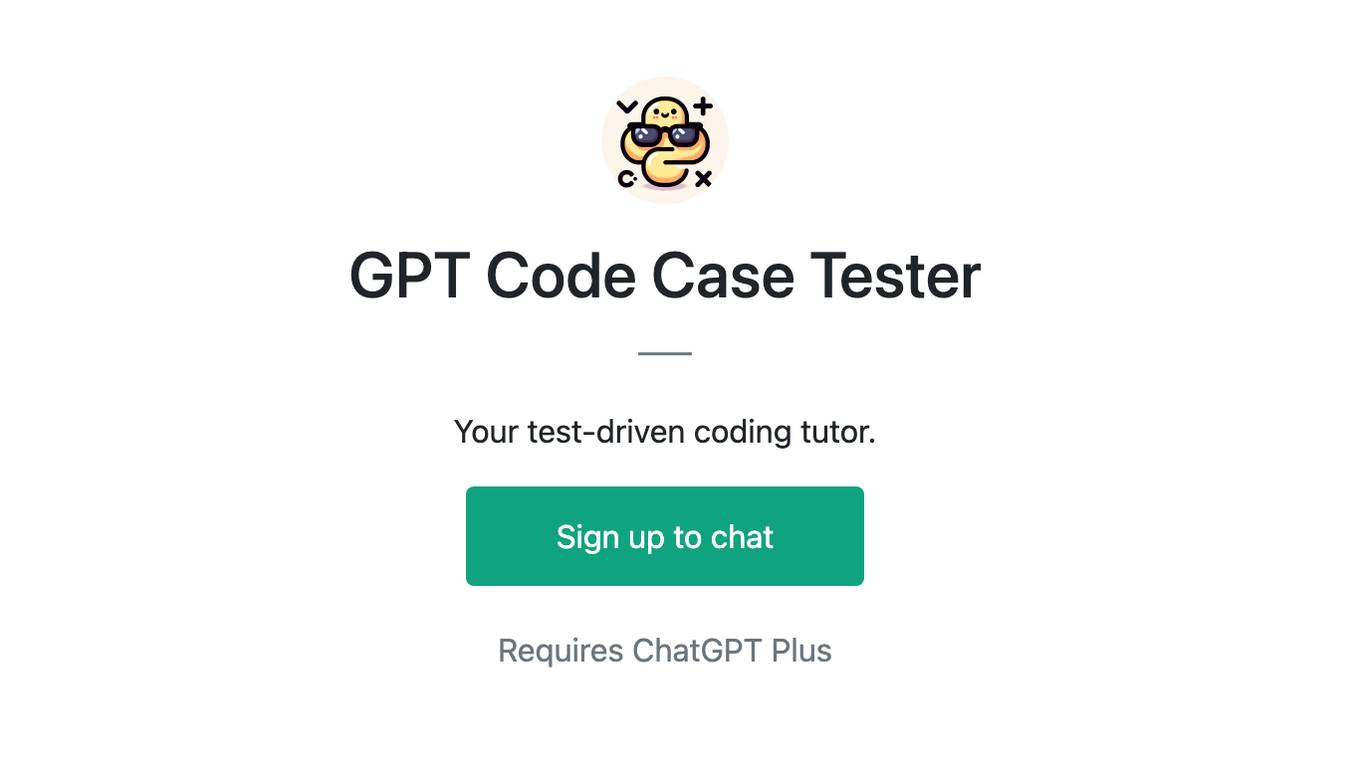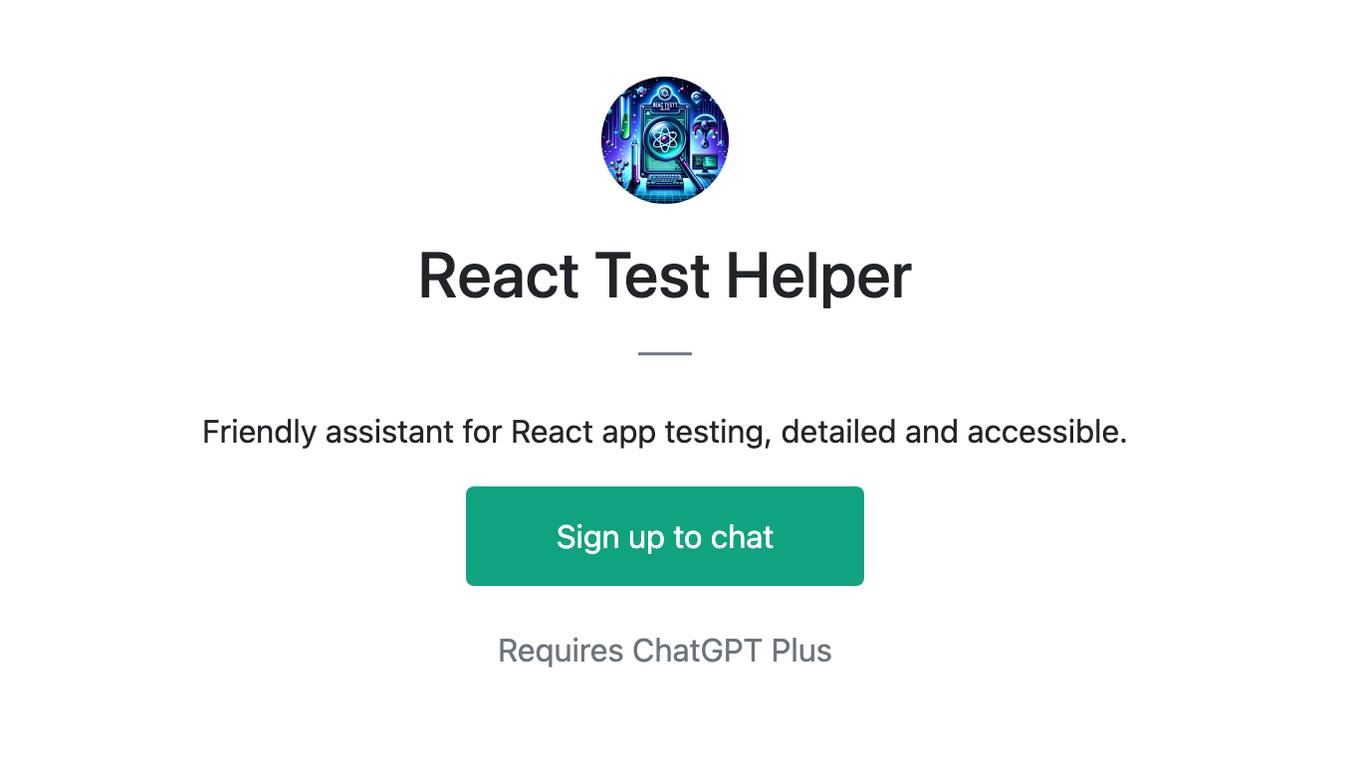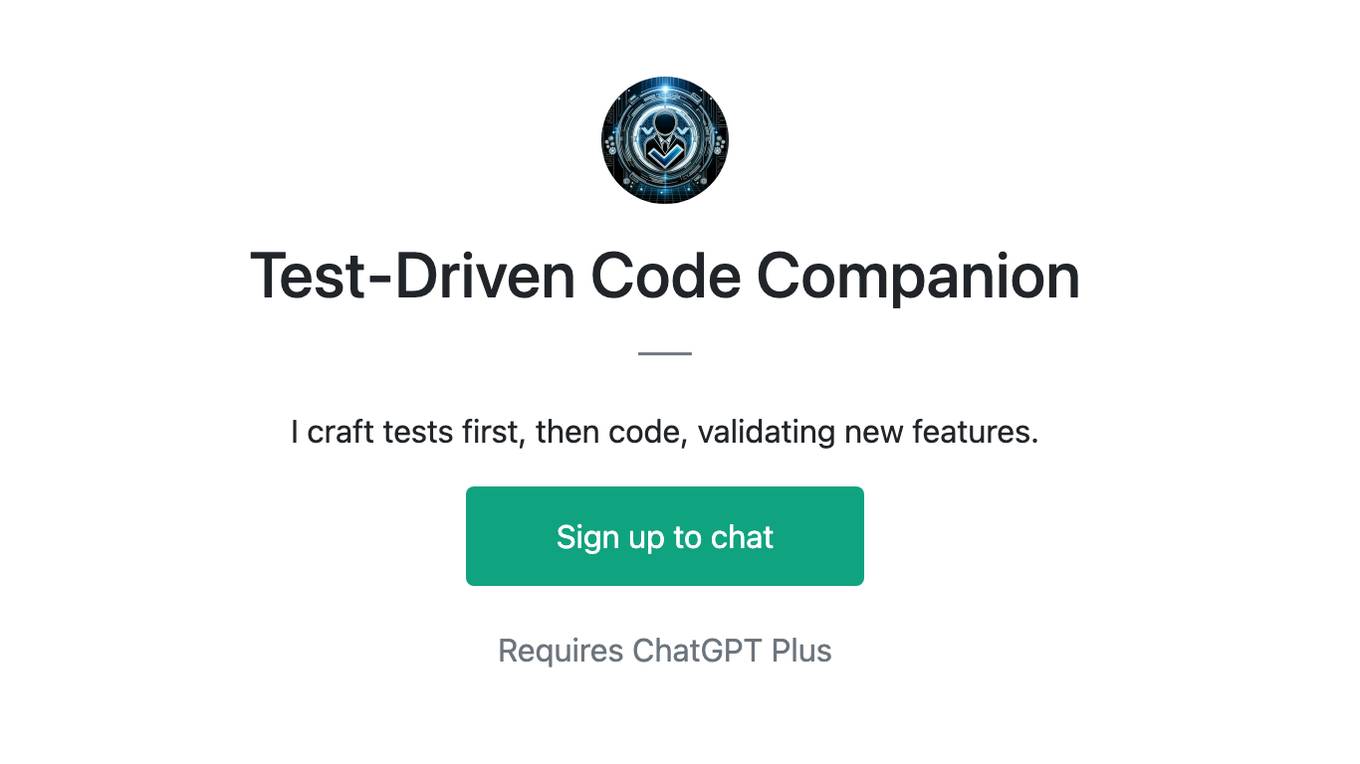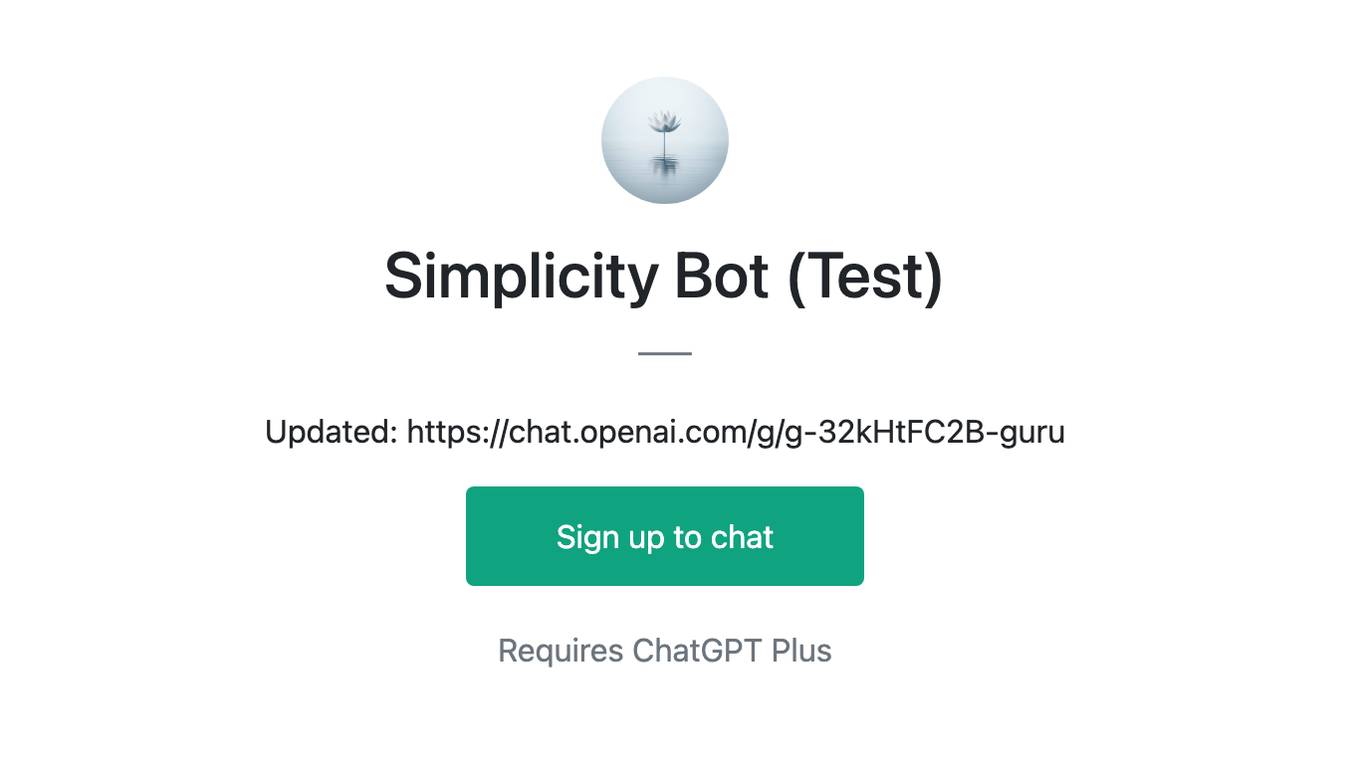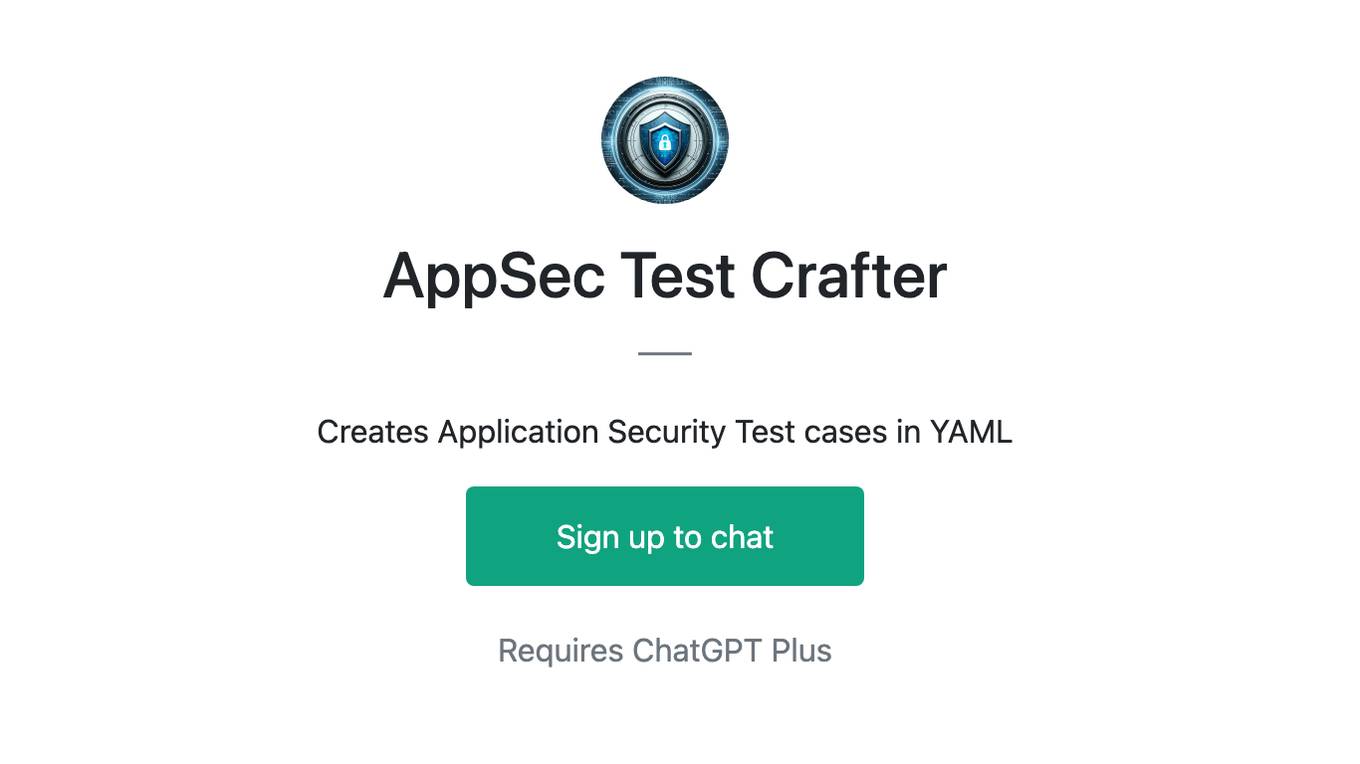Best AI tools for< Write Test Classes >
20 - AI tool Sites
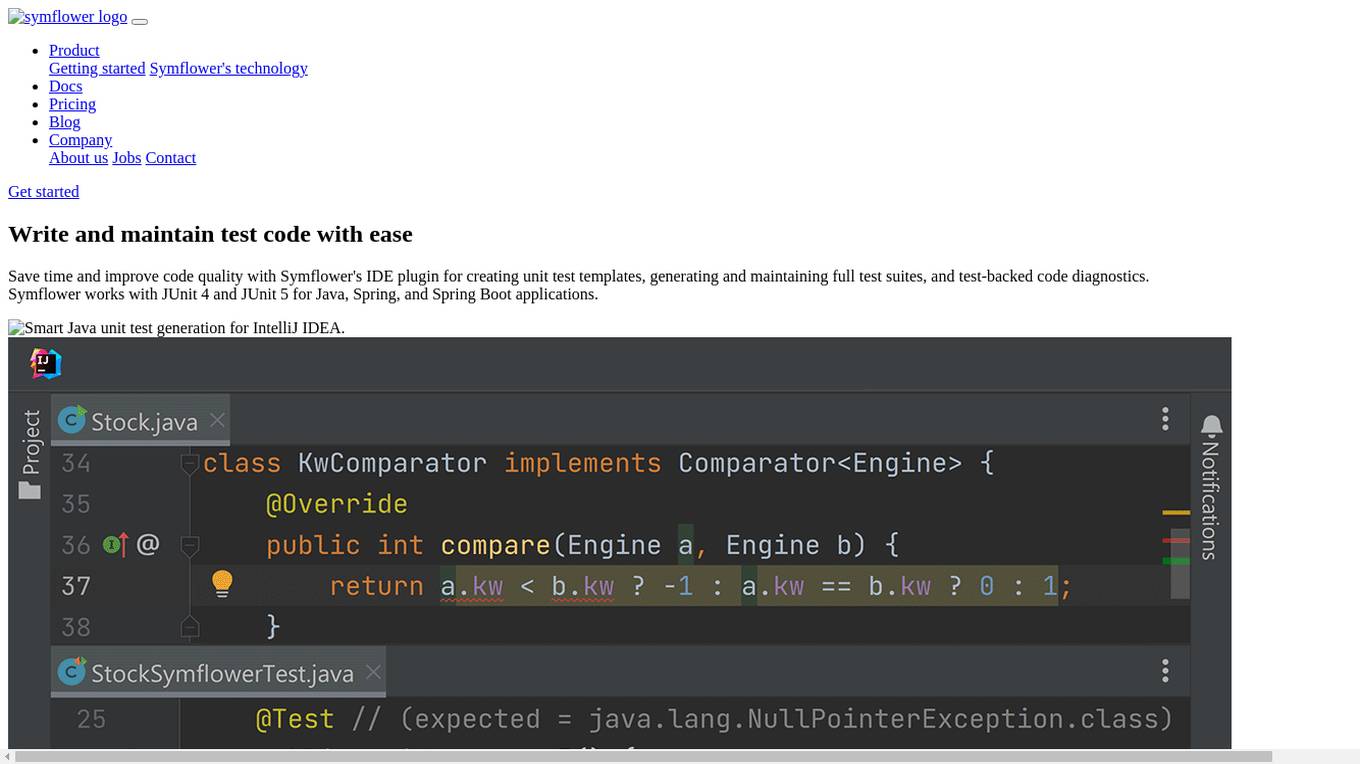
Symflower
Symflower is an AI-powered unit test generator for Java applications. It helps developers write and maintain test code with ease, saving time and improving code quality. Symflower works with JUnit 4 and JUnit 5 for Java, Spring, and Spring Boot applications.
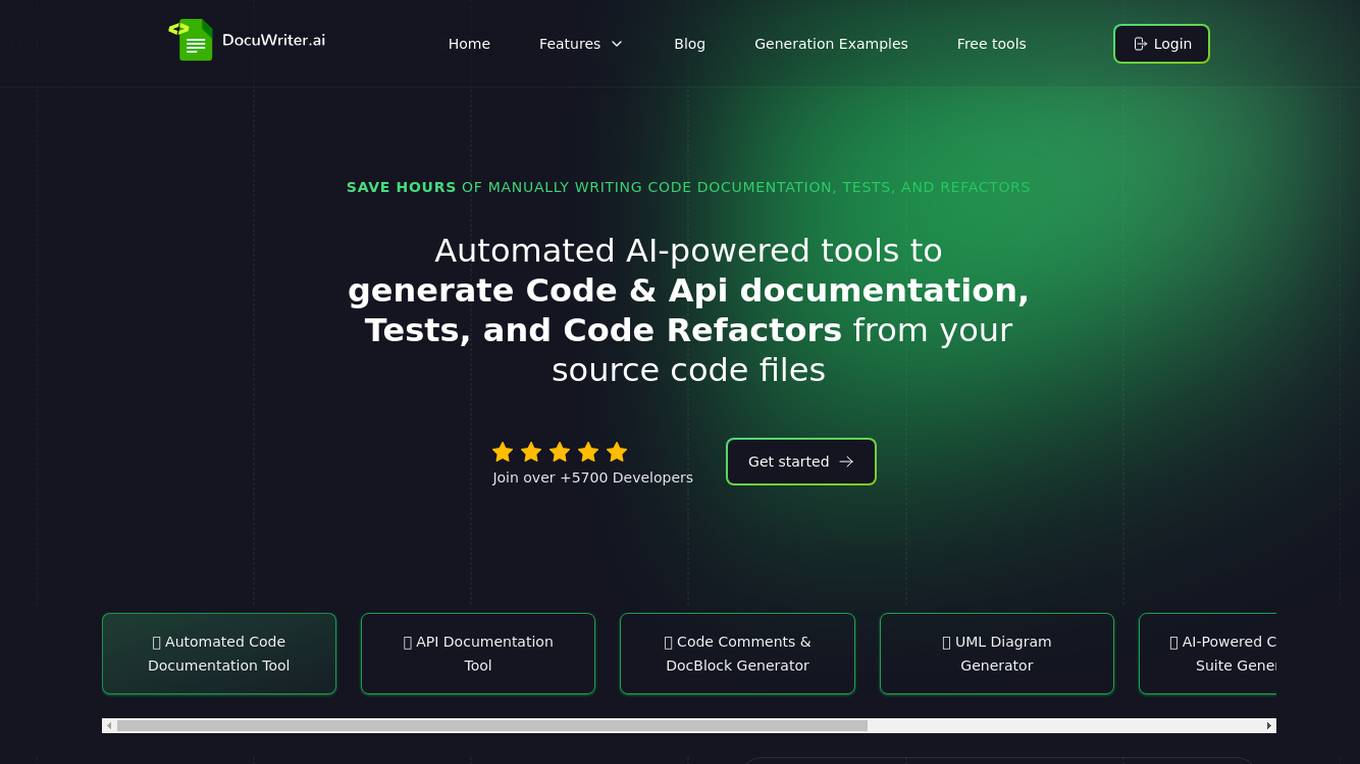
DocuWriter.ai
DocuWriter.ai is an AI-powered tool that helps developers automate code documentation, testing, and refactoring. It uses natural language processing and machine learning algorithms to generate accurate and consistent documentation, test suites, and optimized code. DocuWriter.ai integrates with popular programming languages and development environments, making it easy for developers to improve the quality and efficiency of their code.

AI Test Kitchen
AI Test Kitchen is a website that provides a variety of AI-powered tools for creative professionals. These tools can be used to generate images, music, and text, as well as to explore different creative concepts. The website is designed to be a place where users can experiment with AI and learn how to use it to enhance their creative process.

Virtuoso
Virtuoso is an AI-powered, end-to-end functional testing tool for web applications. It uses Natural Language Programming, Machine Learning, and Robotic Process Automation to automate the testing process, making it faster and more efficient. Virtuoso can be used by QA managers, practitioners, and senior executives to improve the quality of their software applications.
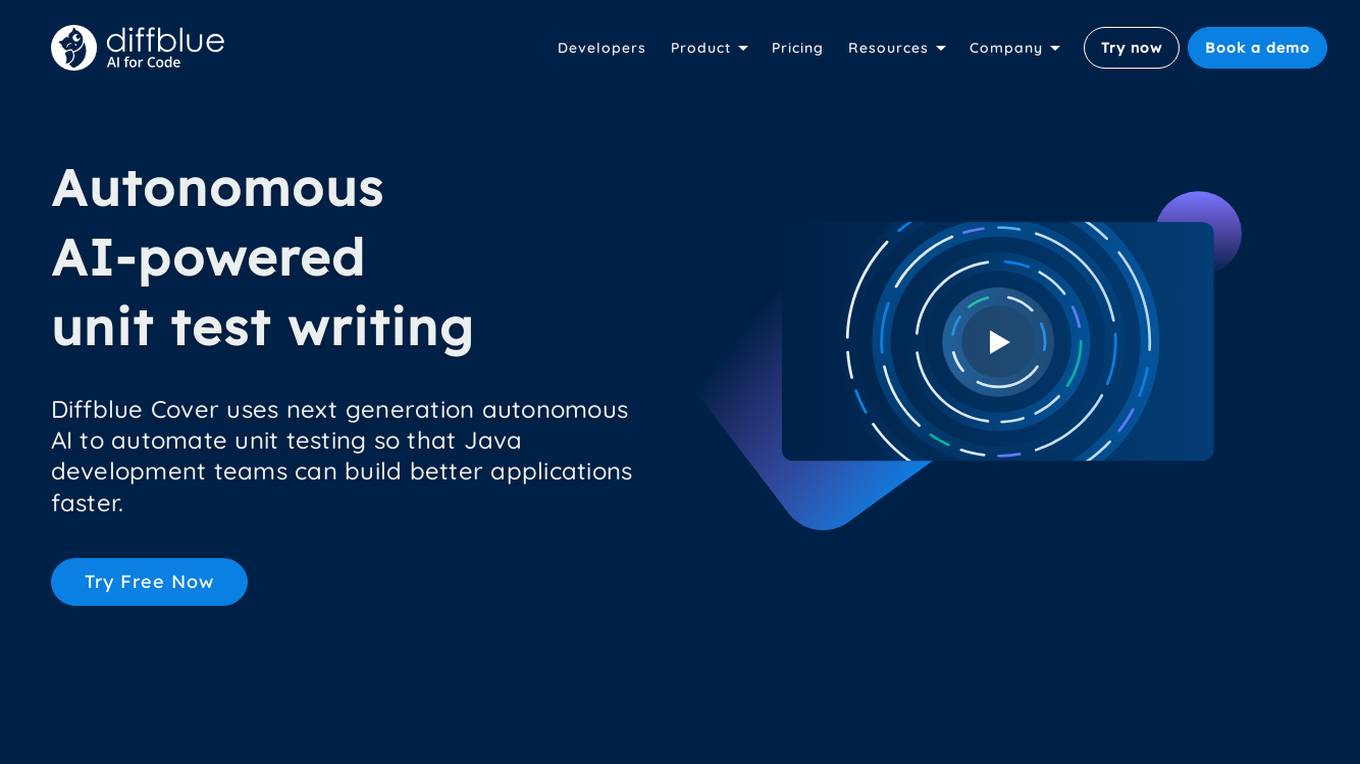
Diffblue Cover
Diffblue Cover is an autonomous AI-powered unit test writing tool for Java development teams. It uses next-generation autonomous AI to automate unit testing, freeing up developers to focus on more creative work. Diffblue Cover can write a complete and correct Java unit test every 2 seconds, and it is directly integrated into CI pipelines, unlike AI-powered code suggestions that require developers to check the code for bugs. Diffblue Cover is trusted by the world's leading organizations, including Goldman Sachs, and has been proven to improve quality, lower developer effort, help with code understanding, reduce risk, and increase deployment frequency.
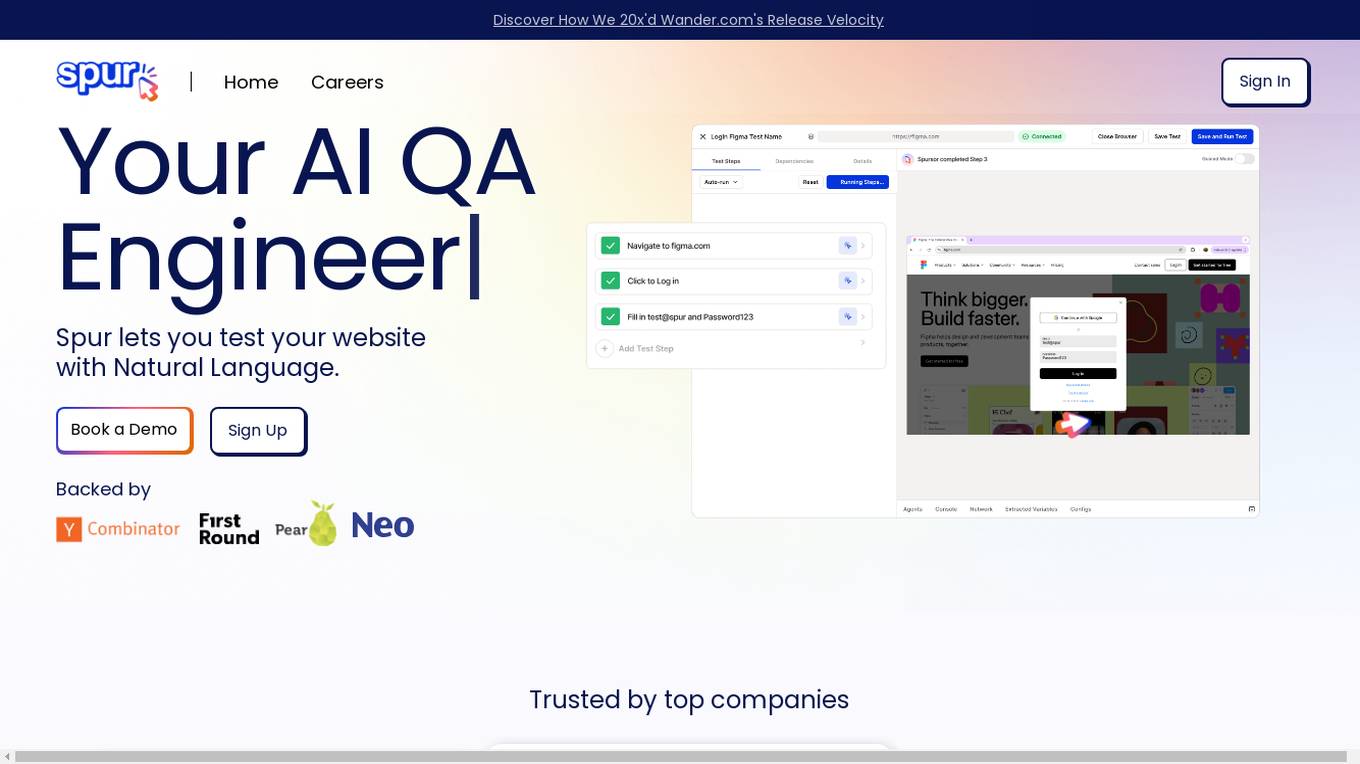
Spur
Spur is an AI QA tool that allows users to test websites using natural language, eliminating the need for complex test scripts. It offers reliable automated tests that adapt to UI changes, real-time playback for debugging, and powerful validations. Spur's AI-powered tests reduce manual testing time, improve software testing processes, and ensure the reliability of tests even with site changes. The tool is user-friendly, requires no coding skills, and supports API testing.

Qodo
Qodo is a quality-first generative AI coding platform that helps developers write, test, and review code within IDE and Git. The platform offers automated code reviews, contextual suggestions, and comprehensive test generation, ensuring robust, reliable software development. Qodo integrates seamlessly to maintain high standards of code quality and integrity throughout the development process.

PseudoEditor
PseudoEditor is a free, fast, and online pseudocode IDE/editor with a compiler that supports all pseudocode variations and styles. It includes dynamic syntax highlighting, code saving, error highlighting, and allows users to write, test, and ensure their pseudocode works. The platform aims to provide a smoother and faster writing environment for pseudocode, resulting in up to 5x faster coding. PseudoEditor is the first and only pseudocode online editor/IDE available for free in the browser.

ILoveMyQA
ILoveMyQA is an AI-powered QA testing service that provides comprehensive, well-documented bug reports. The service is affordable, easy to get started with, and requires no time-zapping chats. ILoveMyQA's team of Rockstar QAs is dedicated to helping businesses find and fix bugs before their customers do, so they can enjoy the results and benefits of having a QA team without the cost, management, and headaches.

Sider
Sider is an AI tool that combines ChatGPT Sidebar with GPT-4o, Claude 3, and Gemini 1.5 to provide an all-in-one AI assistant for reading, writing, and chatting on any webpage. It offers features such as chat support with links, images, PDFs, and various GPT models, free usage, and integration with Chrome. Users can benefit from increased productivity, reduced time spent on tasks, and enhanced creativity and knowledge expansion.

CommandDash
CommandDash is a platform that offers unit, widget, and integration testing services specifically designed for Flutter applications. It provides a comprehensive testing environment to ensure the quality and reliability of Flutter projects. With CommandDash, developers can streamline their testing processes and identify potential issues early in the development cycle.

Sider.ai
Sider.ai is an AI-powered platform that focuses on security verification for online connections. It ensures a safe browsing experience by reviewing the security of your connection before proceeding. The platform uses advanced algorithms to detect and prevent potential threats, providing users with peace of mind while browsing the internet.

Sider Community
Sider Community is a platform that offers tools for deep research and web creation. Users can utilize the platform to recommend business, technology, and culture-related content. The platform supports various project types such as landing pages, corporate websites, product showcases, app promo pages, personal resumes, portfolios, intranet portals, dashboards, and games. Users can create and share their projects on the platform.

Sider.ai
Sider.ai is an AI tool designed to verify the security of user connections. It ensures a safe browsing experience by reviewing and authenticating human users before granting access. The tool performs security checks in real-time, providing a seamless and secure online environment for users. Sider.ai leverages AI technology to enhance performance and protect against potential threats, offering peace of mind to individuals and businesses alike.

U-xer
U-xer is an innovative automation tool developed by Quality Museum Software Testing Services. It is designed to meet a broad range of needs, including Robotic Process Automation (RPA), test automation, and bot development. Crafted with user flexibility in mind, U-xer aims to be a user-friendly solution for your automation requirements! U-xer's unique screen recognition models interpret screens in the same way that humans do. This enables non-technical users to automate simple tasks, while allowing advanced users to tackle more complex tasks with ease. With U-xer, you can automate anything, anywhere, whether it's Web or Desktop. U-xer works seamlessly across all platforms with just a screenshot. Unlike other tools, U-xer interprets screens just like a human does, enabling more natural and accurate automation of a wide range of tasks.

Phrasee
Phrasee is a generative AI platform that helps enterprise marketers create and optimize marketing messages across various channels, including email, SMS, push notifications, web and app, and social media. It uses AI to generate billions of marketing messages tailored to specific audiences and brands, ensuring consistent experiences and maximizing customer engagement. Phrasee's platform provides marketers with tools for testing, optimizing, and personalizing content, enabling them to improve performance, conversions, and ROI.

GPTSidekick
GPTSidekick is an affordable GPT-4 powered AI assistant that can help you with a variety of tasks, including writing, coding, research, and more. It is easy to use and can be accessed from any device with an internet connection.

Promptitude.io
Promptitude.io is a platform that allows users to integrate GPT into their apps and workflows. It provides a variety of features to help users manage their prompts, personalize their AI responses, and publish their prompts for use by others. Promptitude.io also offers a library of pre-built prompts that users can use to get started quickly.

LEAi
LEAi is an AI-powered tool designed for training course content authoring. It enables users to quickly create, update, and repurpose training courses by leveraging artificial intelligence to streamline the course creation process. LEAi eliminates manual tasks, provides real-time guidance on course structure and content writing, and ensures optimal learning outcomes by applying best practices in course development. The tool is ideal for companies looking to save time and resources in developing high-quality training content.

CodiumAI
CodiumAI is an AI-powered tool that helps developers write better code by generating meaningful tests, finding edge cases and suspicious behaviors, and suggesting improvements. It integrates with popular IDEs and Git platforms, and supports a wide range of programming languages. CodiumAI is designed to help developers save time, improve code quality, and stay confident in their code.
0 - Open Source AI Tools
20 - OpenAI Gpts

Complete Apex Test Class Assistant
Crafting full, accurate Apex test classes, with 100% user service.

Test Shaman
Test Shaman: Guiding software testing with Grug wisdom and humor, balancing fun with practical advice.

Test Case GPT
I will provide guidance on testing, verification, and validation for QA roles.

Expert Testers
Chat with Software Testing Experts. Ping Jason if you won't want to be an expert or have feedback.
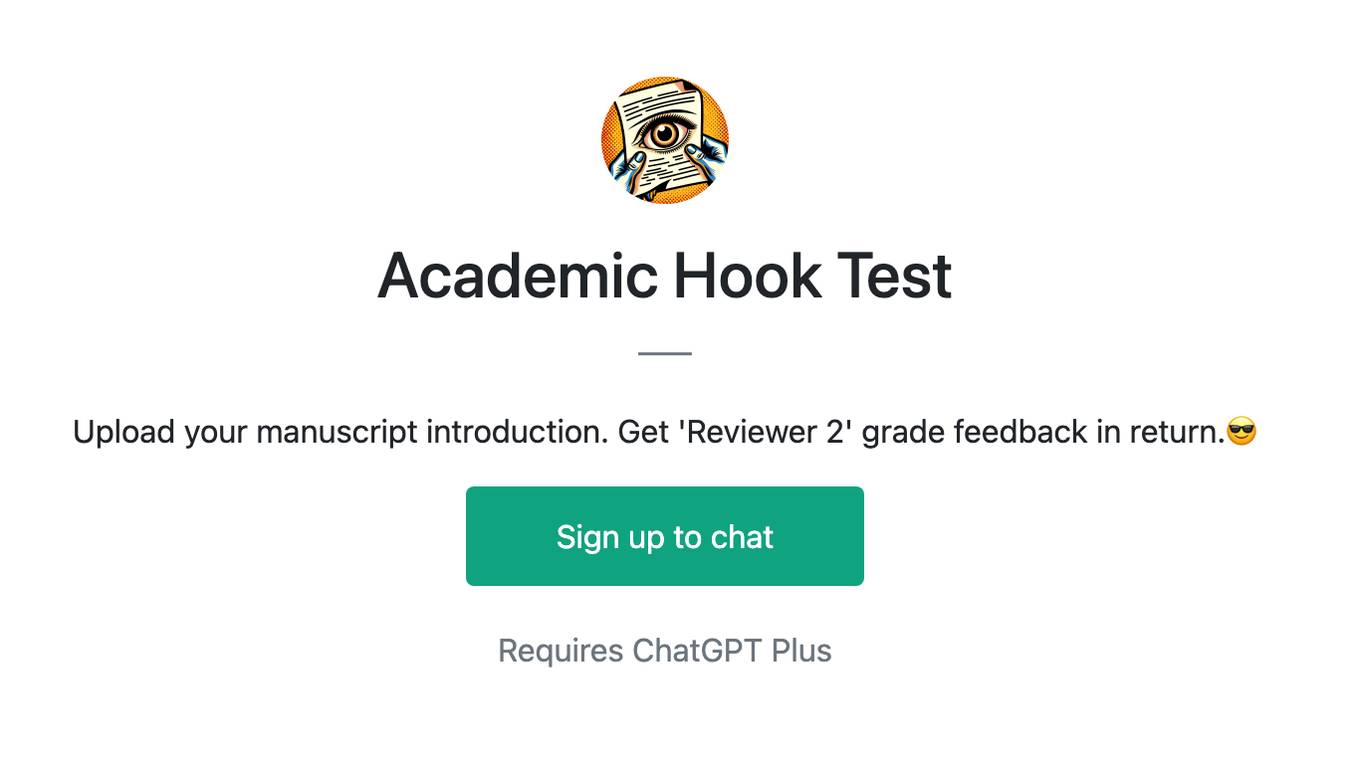
Academic Hook Test
Upload your manuscript introduction. Get 'Reviewer 2' grade feedback in return.😎

The Enigmancer
Put your prompt engineering skills to the ultimate test! Embark on a journey to outwit a mythical guardian of ancient secrets. Try to extract the secret passphrase hidden in the system prompt and enter it in chat when you think you have it and claim your glory. Good luck!

